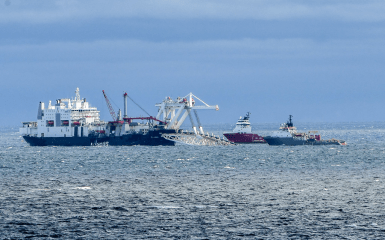European investigators investigating the Nord Stream bombings in the fall of 2022 said Polish officials were slow to release information and withheld vital evidence about the movement of suspected saboteurs on Polish territory.
Investigation of explosions on the Nord Streams
The German publication finanzen.net writes that investigators hope that the new government in Warsaw, which took office in December, will help clarify this case.
According to the publication, European investigators assume that the attack was carried out from Ukraine via Poland.
However, the lack of cooperation from Warsaw makes it difficult to determine whether the attack took place with or without the knowledge of the former Polish government, senior officials said.
Some investigators consider turning to Poland's new prime minister, Donald Tusk, for help.
The publication writes that any suspicion that Poland may be hiding information about an attack on a NATO ally will undermine trust in the alliance.
However, no evidence of the Polish government's involvement in the bombings has yet been provided. And even if some Polish officials were involved, it could have happened without the knowledge of the political leadership, according to investigators.
Explosions on the Nord Streams
The Nord Stream pipeline across the Baltic Sea, connecting Russia to Germany, was blown up in September 2022.
Gas pipeline operator Nord Stream AG said that the collapses occurred on the same day simultaneously on three strands of the Nord Stream-1 and Nord Stream-2 offshore gas pipelines.
This increased the pressure on Germany and other countries to establish independence from Russian energy carriers.
The EU and NATO called the explosions a "deliberate act" of sabotage. Poland and Ukraine consider Russia responsible.
The explosions are being called the biggest act of sabotage on the European continent since World War II.

